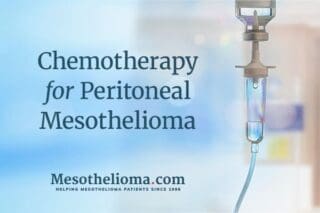
A cancer diagnosis comes with many challenges. Cancers like mesothelioma can affect interpersonal relationships. Though they can be difficult, relationships can also be a source of strength.
Research shows social support may help people adapt better to major illnesses. Support can come in the form of friends and family members. It can also come from healthcare professionals and community groups.
For cancer patients, thinking about all the ways cancer can change relationships can feel overwhelming. Learning about the benefits of social ties can help patients feel more optimistic about maintaining them. Known strategies exist for navigating these ties after a cancer diagnosis.
Why Are Interpersonal Relationships Important?
Our relationships with others are important for our well-being. This is true for all people, cancer patients included. Social ties can benefit health in a number of ways.
Social relationships may encourage healthy behaviors like exercise and sticking to medical regimens. Positive interactions with others benefit the immune and cardiovascular systems.
Social support can also improve mental health. Research suggests this may reduce the risk of unhealthy behaviors and poor physical health.
Healthy behavior, positive physiological responses and good mental health are all important parts of a cancer patient’s overall well-being. Still, it can be difficult to keep up the social ties that may support these health benefits. Patients shouldn’t be afraid to seek assistance and use helpful strategies for handling interpersonal relationships post-diagnosis.
Strategies for Handling Relationships With Friends and Families
A cancer diagnosis can affect relationships with family and friends in profound ways. It can stir up a lot of complicated emotions. For example, cancer patients may feel guilty about upsetting people they love with news of their diagnosis. Strategies for dealing with interpersonal relationships often emphasize the following:
- Directness and openness: Being direct and open may help set expectations with friends and family. Talking about cancer may help reduce feelings of stress and strengthen emotional bonds. It can also help friends and family understand patients’ needs, like limiting physical activities after treatment.
- Focus on important relationships: It can be difficult for patients to maintain all the relationships they had before their diagnosis. But negative social interactions can create stress, and stress can undermine health. So it is okay to focus on relationships that will provide support and comfort.
These strategies may help patients maintain good relationships without sacrificing their needs.
Support is also available to help manage close relationships. Some therapists and counselors specialize in helping families affected by cancer. You can ask your doctor about a referral.
Patients may also want to seek out new connections with people who also have cancer. Cancer support groups can help cancer patients find others with similar experiences. This can foster a sense of community and belonging during a time when many people feel isolated.
Strategies for Handling Relationships With Healthcare Workers
A cancer diagnosis comes with a whole new set of interpersonal relationships between a patient and their healthcare team. Good relationships with the people providing treatment are associated with positive outcomes, including:
- Being happier with the care provided
- Being more likely to follow through with treatment
- Improving knowledge of cancer and prognosis
- Reducing anxiety
Openly communicating with your health teams can help foster strong relationships. And patient navigators can help facilitate communication with doctors.
Patients may also consider finding more supportive and open healthcare providers if their current team is not doing their part to foster good interpersonal relationships. Mesothelioma patients can find experienced doctors at cancer centers throughout the country.




